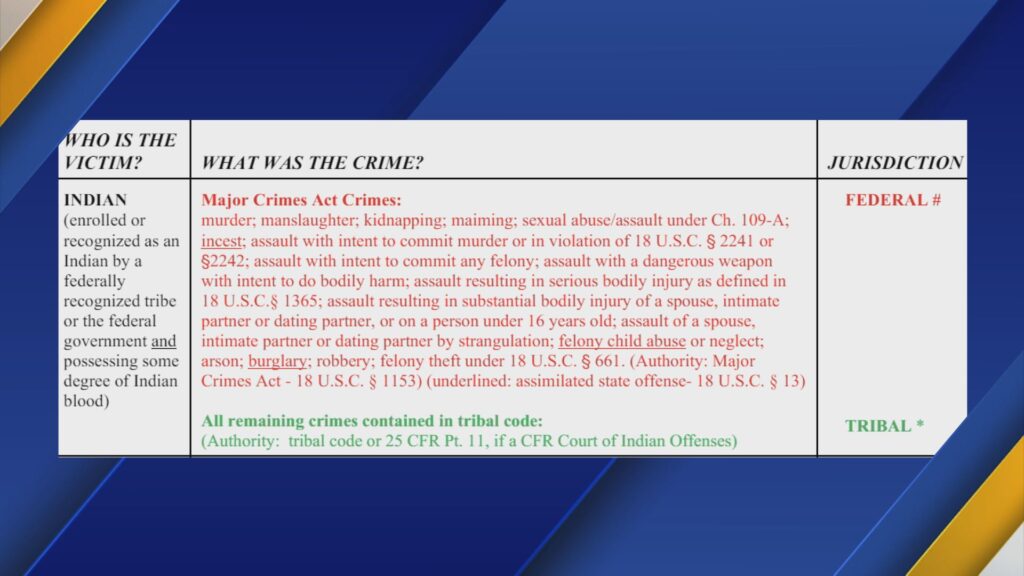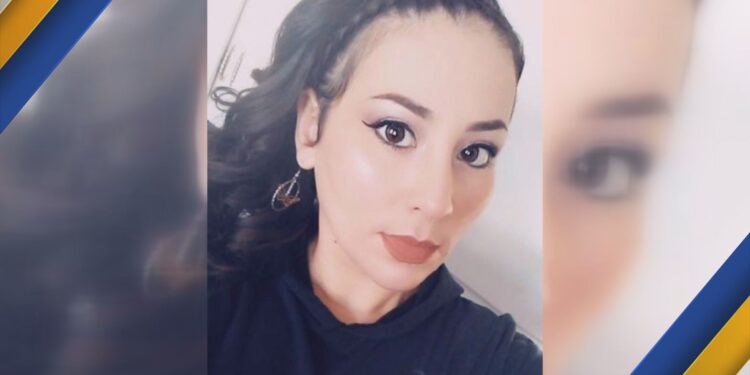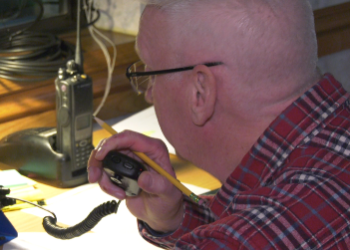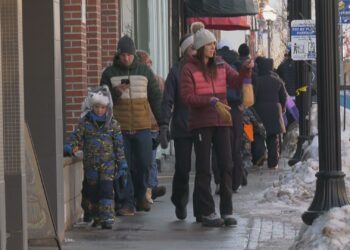HANNAHVILLE, Mich. (WZMQ) – A family in the Hannahville Indian Community is seeking justice for a woman who was killed earlier this year.
“My sister Lila was a pedestrian in a motor vehicle accident, and the driver was intoxicated,” said Hannahville Victim Services Outreach Coordinator Victoria Steinhausen.
On January 26, 37-year-old Lila Malinowski was walking along Number 38 road, on her way to see her daughter. She was struck and killed by a vehicle, leaving behind seven children.
The driver was charged with drunk driving and driving with an open container. Tribal Prosecutor Rob LeMire added a reckless driving charge and says the driver received the maximum one-year sentence under Tribal law. However, Steinhausen believes justice has not been served.
“The driver was sentenced to county jail and she will be released soon,” she said. “The FBI did pick up the case, and they partnered with Michigan State Police for a reenactment of the scene.”
However, the FBI informed Lila’s family on April 19 that its investigation had been closed. The Hannahville Tribal Police Department has also closed its investigation.
Chief of Police Jeff Hansen told WZMQ 19, “The Michigan State Police provided the evidence found during the course of their investigation to the tribal and federal prosecuting attorneys for consideration. The details of that end of the investigation were shared with the family of Lila and I have no details to dispute what they have shared.”
Lila’s family also consulted the Western Michigan United States Attorney’s Office. A spokesperson told WZMQ 19, “A number of federal laws spell out the circumstances in which the United States Attorney’s Office has the authority to prosecute crimes occurring in or affecting our tribal communities. Unfortunately, after careful evaluation of the circumstances in this case, we determined that we did not have authority to prosecute it.”
The Attorney’s Office referred to a chart prepared by the U.S. Attorney’s Office for the Western District of Oklahoma, shown partially below and available in full by clicking here.

“In the state, they cannot step in because it was a Tribal-on-Tribal crime that happened on Tribal land,” said Steinhausen. “Even though the crime did occur on a county road, it was within Tribal land. For the bigger crimes that may occur on the reservation, we do count on our big brother, the federal government, to serve justice in these cases.”
Steinhausen says jurisdictional issues and Tribal law restrictions are major factors when it comes to sentencing in cases like Lila’s death.
“In Tribal law, we are limited to what we can sentence, and the statute for involuntary manslaughter does not exist,” she said. “Even if it did, we are limited to a one-year maximum imprisonment sentence.”
Prosecutor LeMire echoed those jurisdictional limitations. He told WZMQ 19 he received a federal report stating that investigators could not rule out that the accident would not have happened if the driver were sober due to weather conditions, lighting, and Lila’s dark clothing.
“There is never enough justice that any criminal justice process can provide to grieving families when there is the tragic loss of a loved one,” Police Chief Hansen wrote to WZMQ 19. “The Hannahville Police Department grieves with the family of Lila and will be working hard in order to prevent an event like this from occurring again.”
Lila’s family asked the U.S. Attorney’s Office how they could move the case forward. According to Steinhausen, they were advised to advocate for change by writing to Congress.
Steinhausen has not done so at this time, although she says the Tribe is taking steps toward justice reform. She also noted that it is “very costly” to implement the Tribal Law and Order Act, which could increase sentencing guidelines for Tribal communities.
“Unfortunately, my sister Lila is not here today to name herself a survivor of crime,” she said. “I ask for your help in raising awareness to stop and listen because this really could happen to anybody, and advocating for this change makes a safer community for our shared communities.”










